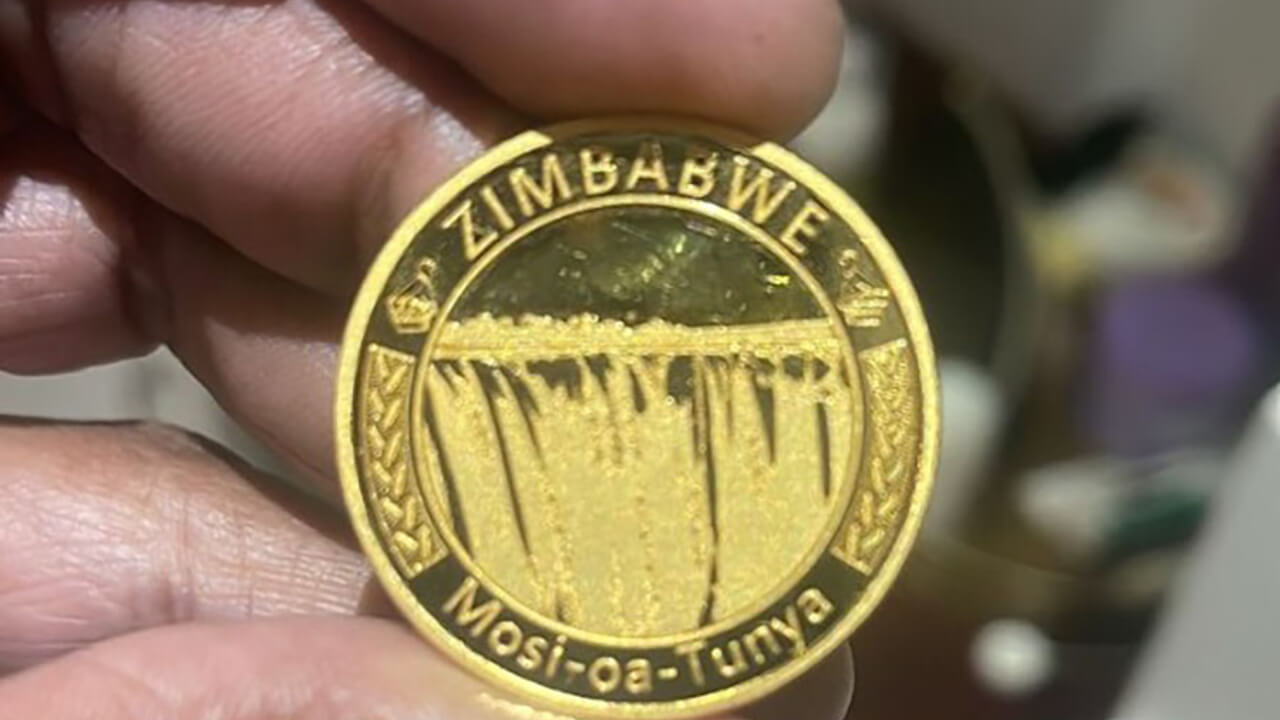Gold coins give Zim ‘financial leverage in foreign trading operations’
The Reserve Bank of Zimbabwe (RBZ)’s gold-backed digital tokens (GBDT), Zimbabwe’s own commodity-backed version of central bank digital currency (CBDC), provide the country an economic and financial leverage in foreign trading operations and future prospects of joining regional monetary unions, an economist has said.
Zimbabwe’s gold-backed digital tokens are the digital form of the country’s gold coins and derive their value from the equivalent international price of the bullion reserves held by the central bank vaults.
Introduced in May this year, the gold-backed digital tokens followed the introduction of physical gold coins six months earlier, which were highly subscribed by investors as Zimbabwe’s domestic currency suffered relentless bouts of depreciation.
The Central Bank said, then, that the physical gold coins were both an investment instrument and a store of value.
Lupane State University Business Clinic development manager, who is also a financial analyst, Mr George Nhepera said gold backed digital token is a significant milestone for the country in the field of international finance and innovation.
Lupane State University
“There is no doubt that the gold backed digital token, if well managed and supported by our legal framework and market confidence, shall be strong in terms of value next only to international currencies such as US dollar, UK pound and Euro,” he said.
“It shall give us as a country an economic and financial leverage in our foreign trading operations and future prospects of joining any monetary union such as the Rand Monetary Union including the Brics Bank,” said Mr Nhepera.
“We are already a member of the International Monetary Fund (IMF), which is a body tasked with ensuring that there is financial and monetary stability across all countries in the world.
“They are in support of local innovative financial instruments that are aimed at achieving the goal of giving value to your local currency and facilitating smooth payment of goods and services,” he added.
Recently, there was a call for the Government to explore the feasibility of paying a portion of civil servants’ salaries in gold-backed digital tokens and gold coins.
Meanwhile, RBZ has indicated the gold-backed digital tokens will only be used for transactional purposes in order to ease payments and are not loanable.
In a statement outlining operational modalities, Governor Dr John Mangudya said the GBDT are being issued to expand the value preserving instruments available in the economy, enhance divisibility of the investment instruments and widen their access as well as usage by the transacting public.
He noted that for transactional purposes, the GBDT will be known as Zimbabwe Gold (ZiG).
“In line with the objective to widen access and usage of the instrument, the bank is expanding the usage of the token from the current investment sphere to enable wider usage for transaction purposes by the public,” he noted.
Financial institutions are not allowed to lend ZiG as well as earn interest as the central bank will be the only issuing bank of the currency.
“ZiG shall only be issued by the Reserve Bank of Zimbabwe. Banks shall not be allowed to lend ZiG. In addition, ZiG is not going to earn interest. The level of ZiG in the market will only change following issuance or redemption by the bank.”
To allow the instrument to be used for transactions, RBZ will buy back the issued instruments and credit the settlement accounts of participant banks on the RTGS system for onward credit of customers’ accounts.
Reserve Bank of Zimbabwe (RBZ)
“Going forward, the ZiG will be issued on the RTGS system. Upon buy-back, the Bank shall provide the balances to be credited into the settlement accounts of financial institutions. Certificates of balance will be issued to confirm the CSD figures for each institution before RTGS take on.”
The Government continues to intervene through different policy measures to strengthen the local currency and provide a sustainable way to store value to local businesses and individuals. —chronicle










